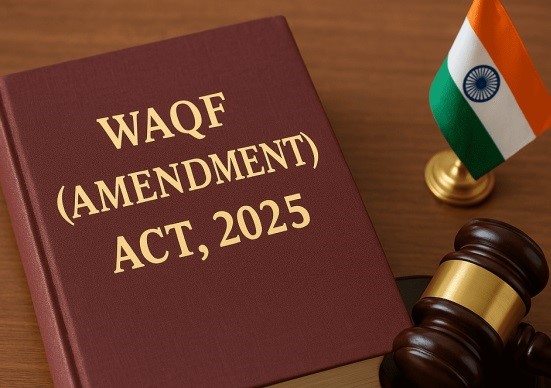Petitions Challenge 2025 Waqf Act Over Key Issues
Why in the News ?
The Supreme Court deferred hearing petitions challenging the Waqf Act, 2025, to May 5 after the Centre sought more time for its reply. Petitioners raised concerns over provisions impacting religious rights and property management of Muslim Waqfs.
Background of the Legal Challenge:
- Around 65 petitions were filed against the Waqf Act, 2025.
- Petitioners include MPs like Asaduddin Owaisi, Mahua Moitra, Manoj Jha, and religious leaders like Maulana Mahmood Madani.
- The Supreme Court’s Bench, led by CJI Sanjiv Khanna, held a two-hour hearing questioning the Centre’s defense of the Act.
Key Issues Raised by Petitioners
- Waqf by Use: The new law omits recognition of “Waqf by use” for future dedications, risking exclusion of historically used religious sites not formally registered.
- Collector’s Powers: District collectors can now label Waqf-used land as government property, halting its Waqf status until a court ruling.
- Non-Muslim Members: The Act permits non-Muslims on Waqf boards, which petitioners argue violates Article 26 that protects a religious community’s right to manage its own affairs.
- Limitation Act: The 2025 law applies the Limitation Act to Waqf property disputes, limiting legal actions against encroachments, unlike the earlier 1995 Act.
Supreme Court Observations and Next Steps
- The Court indicated possible stay on appointing non-Muslims to Waqf boards.
- The Centre assured it won’t alter Waqf status or make such appointments until the next hearing.
- Final arguments and affidavit submissions are due on May 5.






